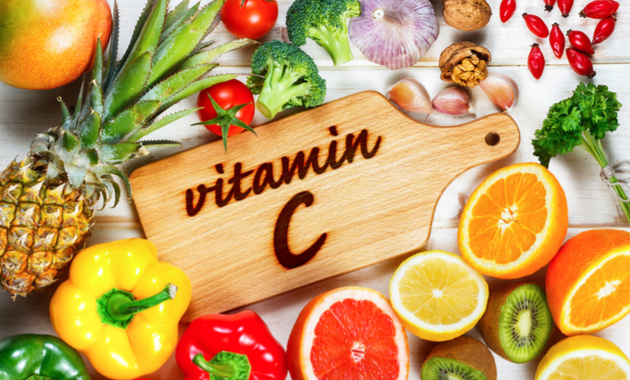VITAMIN C SIDE EFFECT
VITAMIN C
STRUCTURE OF VITAMIN C
DISEASE OCCUR DUE TO DEFICENCY OF VITAMIN C
Vitamin C, also known as ascorbic acid, is a water-answerable vitamin that plays a vital part in numerous functions of the body. It's an essential nutrient that the body can not produce on its own, and thus, it must be attained from the diet or supplements.
Vitamin C has numerous important functions in the body, including
1. Boosting the vulnerable system Vitamin C plays a critical part in the vulnerable system, supporting the product of white blood cells and helping to cover against infections and conditions.
2. Antioxidant As an antioxidant, vitamin C helps cover the body from dangerous free revolutionaries that can damage cells and lead to habitual conditions similar as cancer and heart complaint.
3. Collagen product Vitamin C is necessary for the product of collagen, a protein that helps to maintain healthy skin, bones, and joints.
4. Iron immersion Vitamin C helps the body absorb iron from factory- grounded foods and supplements.
Foods that are high in vitamin C include citrus fruits( similar as oranges, grapefruits, and failures), berries, kiwi, mango, pineapple, tomatoes, bell peppers, and broccoli.
The recommended diurnal input of vitamin C for grown-ups is 75- 90 mg per day. still, advanced boluses may be recommended for people with certain health conditions or those who bomb, as smoking can deplete vitamin C situations in the body. It's generally considered safe, but high boluses of vitamin C may beget diarrhea, nausea, and other gastrointestinal issues.
SIDE EFFECT OF VITAMIN C
Vitamin C is generally safe for utmost people when consumed in recommended boluses, which generally range from 75- 90 mg per day for grown-ups. still, in some cases, high boluses of vitamin C may beget side goods. Some implicit side goods of taking too important vitamin C include
1. Digestive issues High boluses of vitamin C can beget digestive issues similar as nausea, diarrhea, stomach cramps, and heartburn.
2. Headaches In some cases, high boluses of vitamin C can beget headaches or migraines.
3. order monuments Large boluses of vitamin C can increase the threat of developing order monuments in some people.
4. Iron load Vitamin C can enhance the immersion of iron from food, which can be problematic for people with hemochromatosis, a condition that causes iron to accumulate in the body.
5. hindrance with medical tests High boluses of vitamin C can intrude with certain medical tests, similar as blood glucose tests and coprolite tests for blood.
It's important to talk to your healthcare provider before taking high boluses of vitamin C supplements or making significant changes to your diet, especially if you have a medical condition or take drug. They can help you determine the applicable lozenge and examiner for any implicit side goods.
VITAMIN C BENEFIT
Vitamin C has multitudinous benefits for the body, including
1. Boosting the vulnerable system Vitamin C helps to strengthen the vulnerable system by stimulating the product of white blood cells, which are responsible for fighting infections and conditions.
2. Antioxidant Vitamin C is a important antioxidant that helps to cover the body from dangerous free revolutionaries that can beget cellular damage and increase the threat of habitual conditions similar as cancer and heart complaint.
3. Collagen product Vitamin C is essential for the product of collagen, a protein that's set up in the skin, bones, and joints. Collagen helps to keep these apkins healthy and strong.
4. Crack mending Vitamin C plays a vital part in the mending of injuries by helping to form new towel and promoting the growth of blood vessels.
5. Iron immersion Vitamin C enhances the immersion of iron from factory- grounded foods, which is important for people who follow a submissive or vegan diet.
6. Eye health Vitamin C may reduce the threat of developing cataracts, a condition in which the lens of the eye becomes cloudy and impairs vision.
7. Heart health Some studies have suggested that vitamin C may help to reduce the threat of heart complaint by lowering blood pressure and perfecting blood vessel function.
Foods that are high in vitamin C include citrus fruits, berries, kiwi, mango, pineapple, tomatoes, bell peppers, and broccoli. It's generally recommended that grown-ups consume 75- 90 mg of vitamin C per day, which can be attained through a balanced diet or supplements.
SOURCE OF VITAMIN C
`
Vitamin C can be set up in a variety of foods, including
1. Citrus fruits oranges, failures, limes, grapefruits, and tangerines are all rich sources of vitaminC.
2. Berries strawberries, snorts, blueberries, and blackberries are excellent sources of vitaminC.
3. Kiwi one kiwi fruit contains further than 100 of the recommended diurnal input of vitaminC.
4. Mango one mug of sliced mango contains about 60 mg of vitaminC.
5. Pineapple one mug of diced pineapple contains about 80 mg of vitaminC.
6. Tomatoes one medium tomato contains about 20 mg of vitaminC.
7. Bell peppers red, unheroic, and green bell peppers are all excellent sources of vitamin C, with a single medium- sized pepper containing further than 100 of the recommended diurnal input.
8. Broccoli one mug of diced broccoli contains about 80 mg of vitaminC.
It's important to note that cuisine can reduce the vitamin C content in foods, so it's stylish to consume vitamin C-rich foods raw or smoothly cooked. also, supplements can be a good option for people who have difficulty meeting their vitamin C needs through their diet alone.







Comments
Post a Comment